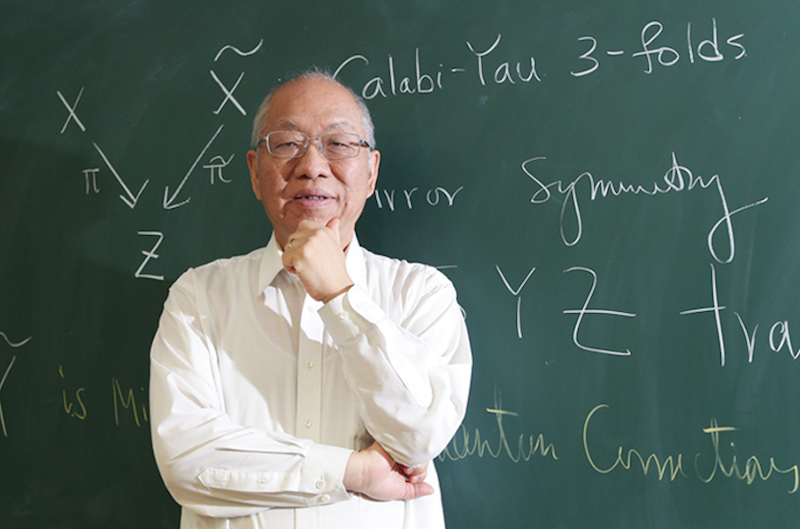
Shing-Tung Yau was born in 1949 in Shantou, one train hour away from Hong Kong. He studied Mathematics at the Chinese University of Hong Kong (CUHK) from 1966 to 1969 and received a PhD in 1971 from UC Berkeley. After being at the IAS Princeton (1971–1972, 1980-1984), SUNY Stony Brook (1972–1974), Stanford University (1974–1979), UC San Diego (1984–1987), he joined Harvard University in 1987 as a Distinguished Professor and was the Director of the Center of Mathematical Sciences and Applications (CMSA) (1994-2016), where he became an Emeritus Professor in 2022.
He is a member of the Chinese Academy of Sciences, the US National Academy of Sciences and the American Academy of Arts and Sciences. He was awarded the Fields Medal in 1982 in recognition of his contributions to partial differential equations, the Calabi conjecture, the positive energy theorem, and the Monge–Ampère equation. Yau is considered one of the major contributors to the development of modern differential geometry and geometric analysis.
Currently, Yau is Chair Professor and Director of the Yau Mathematical Sciences Center (YMSC) at Tsinghua University, and was one of the main initiators of the Beijing Institute of Mathematical Sciences and Applications (BIMSA), of which he is the first president.






